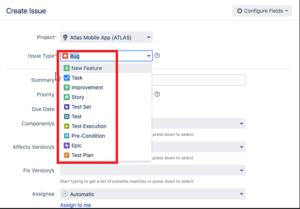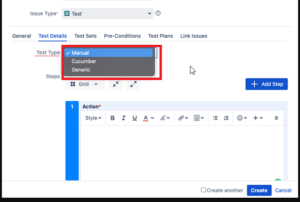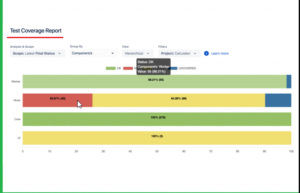Xray is the leading Quality Assurance and Test Management Jira plugin, which helps companies in effective and efficient testing. It is the best test management tool that covers the entire testing life cycle: test planning, test specification, test organization, test execution and test reporting.

Before diving deep into Xray, we will first see Test Management and Jira with its role in testing.
TESTING AND TEST MANAGEMENT
Testing is the primary activity aimed at detecting and solving technical issues in the software source code and assessing the overall product usability, performance, security, and compatibility. It is the process of evaluating and verifying that a software product or application does what it is supposed to do. The benefits of testing include preventing bugs, reducing development costs and improving performance.
Test Management manages the testing activities to ensure high-quality and high-end testing of the software application. The method consists of organizing, controlling and ensuring traceability and visibility of the testing process to deliver a high-quality software application. It ensures that the software testing process runs as expected.
JIRA AND ITS ROLE IN TESTING/ TEST MANAGEMENT
JIRA Software is known worldwide by developers, project managers and even QA experts for its project management and issue-tracking capabilities. For QA work, JIRA offers them some solid features in terms of bug tracking and requirements management.
• Ability to create test-related issues as new issue types Linking between issues (ex: bugs and requirements)
• Automatic and manual issue assignment Specific workflow definition
• Reporting Highly customizable screens, fields and notifications
• Import data from other systems
• Integration with several Atlassian tools. And also, there are thousands of add-ons for JIRA, some specifically made to leverage your Test Management experience.
INTRODUCTION TO XRAY FOR JIRA TEST MANAGEMENT
Xray is a tool that lets you streamline the process of test management and automation. It helps you organize and manage tests, automate the process of test execution, and generate test reports. Xray issues integrate your testing activities while inheriting the best of JIRA. Let’s see some of the vital features and functions Xray plays in Test Management.
Fully Integration with JIRA :
Xray is entirely and easily integrated into Jira. No other installations or access are required.
Xray uses Jira native issue types like
- Test
- Test Plan
- Pre-Conditions
- Test Set
- Test Execution.
All test objects can be managed in Jira (from boards to reports to dashboards).
Xray is one of the few tools that assure data consistency by storing test definitions for past executions, guaranteeing the integrity of previous test runs, no matter what you do afterward.
Organizing and Managing Test Cases :
Xray helps you manage your tests in an organized way. It lets you create tests, group them into test sets, and create test plans. When you create something new, you have some options. (refer to attached image).

If you’re creating a test, for instance, you can create a manual, Cucumber, or generic test.
Tests may be organized the Jira way: using labels, components, priority or other fields.
Xray introduces the Test Set issue that basically groups a set of Tests by your own criteria. A Test may belong to multiple Test Sets. Tests may be run right away as unplanned test executions. This makes it easier to find or sort tests later on.
The Test Plan always reflects the current status of your relevant tests, no matter how many executions you do. Using this feature, you can schedule tests to run at any given time.
Test Automation :

We can create three types of tests: (refer to image)
- Manual – structured test, which consists sequence of steps
- Cucumber – Gherkin-based scenarios
- Generic – unstructured test, without steps
Xray allows you to specify Cucumber automated tests in your natural language using Gherkin. Xray will enable you to manage generic automated tests, no matter what automation framework you’re using.
You can automate tests in Xray by creating Cucumber tests. Alongside Gherkin—grammar rules to convert the plain text to Cucumber format – you can create automated tests. You’ll need to implement the code to run for each scenario. Lastly, you’ll need to publish the results in a structured format to the Jira Rest API.
Generating Test Reports and Gadgets :
Once you’ve executed tests, you can generate a traceability report to see their details. The report shows the requirements, tests, test runs, and defects.

Image showing test coverage in Xray
For failed tests, the column for defects shows the reason for the failed test.
You can export the report in CSV format for further analysis. You can also integrate Xray with another Jira application, Confluence, to present the results in a more transparent, more helpful structure.
Enhanced reporting using Jira gadgets (e.g., pie charts, tables), JQL and through specific custom fields, besides the built-in gadgets for requirement coverage overview and evolution.
Conclusion
We have some briefs about the Xray role in Test Management with Jira. It fulfills all the requirements of manual and automation tests, hence it is the most efficient and effective Jira plugin compared to others.
Thanks for reading!


Nice blog Rohit, Keep Writing!!